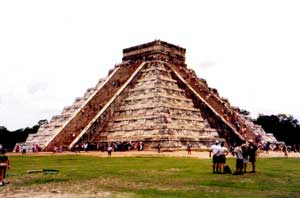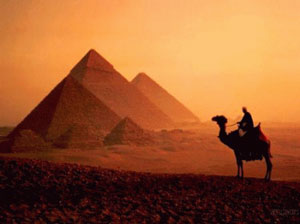 रहस्यवाद/धर्म
रहस्यवाद/धर्म  Gnosis as Philosophy
Gnosis as Philosophy
Gnosis as Philosophy |

|

|
| इस के लेख़क हैं सम्पादक | |||

As a philosophy, Gnosis always implies a message, an orientation, a teaching that is always directed towards man’s consciousness and invites him to reflect consciously. By means of a serene reflection, the gnostic philosophy always tries to take man up to the summit of the REAL BEING (that which is divine in each human creature). A gnostic philosopher loves wisdom and restlessly seeks for truth, which is contained in his innermost essence. It would be a serious error to talk about philosophy and just refer to the ancient Greeks’ philosophy: Plato’s, Socrates’s or Solon’s philosophy. Gnosis as a philosophy is, in reality, a very natural function of the consciousness, and springs (as we have already said) from different latitudes. Those who think that it only has its origin in Greece, or Persia, or Iraq, or Palestine, or in medieval Europe, are mistaken. Gnosis, as a “Philosophia Perennis et Universalis”, may be found in any Hindu work, in any archaeological stone, etc. The time has come to comprehend that the hidden knowledge is beating in every land all over the world. The time has come to understand that the hierophant’s wisdom flourished by the pyramids of Egypt. The time has come to know that inside the pyramids of Teotihuacan you may still hear the words of the ancient masters of Anahuac resounding... 
In the name of truth we must say that the cosmic wisdom is blazing and beating in all that has been, is, and will be. Throughout time, different hierophants of knowledge shone in the deep night of all ages. Now Hermes Trismegistus, the thrice greatest god Ibis of Thoth, who engraved the “Emerald Tablet” with his wisdom; now the great wise men of ancient Greece, who taught the crowds of the Mysteries of Eleusis; now the Inca priests, who shone like brilliant suns at the “Alto Cuzco” of Peru; now the sovereign wisdom of Anahuac’s great initiates... Yes, here and there the wisdom of all ages, the occult wisdom is always shining. The present is a moment of confusion. Humankind finds itself in a state of chaos; there is a worldwide crisis and a bankruptcy of all ethical and moral principles. People have plunged into war, some against others and all against all. In this moment we can only do one thing: we have to delve deep into the wisdom of the past, extracting from among codices the precise orientation to guide us in the present time. We have to drink from the traditional source of nature’s august wisdom, searching for the original channels of cosmic truth. 
This is the purpose of Gnostic Anthropology. By means of wide-ranging study, the Gnostic Anthropology seeks to redefine the ETHICAL PRINCIPLES that form the fundamental stone of the great cultures of the past. The Gnostic Anthropology is a PSYCHOANALYTICAL ANTHROPOLOGY. By means of Psychoanalysis, we can extract from different archaeological remains (niches, pyramids, tombs, etc.) the psychological principles contained in them. By means of the Gnostic Anthropology we know the diverse scenarios of the world, and are capable of finding in them the arcana or secrets that, in a transcendent way, enlighten the controversial enigmas of existence for us. The time has come for us to study again the teachings of the past, but with a watchful eye, knowing how to extract, from the dead literal meaning, the vivifying spirit. It is evident, however, that without previous information about Gnostic Anthropology it would be quite impossible to study, in a rigorous way, the diverse anthropological remains from the Aztec, Toltec, Maya, Egyptian, etc., cultures. As for the “profane anthropology” (excuse the similarity), if you want to know the results, release a monkey or ape inside a laboratory and observe what happens.
The Mexican codices, the Egyptian papyri, the Assyrian bricks, the Dead Sea Scrolls, strange parchments, some very ancient temples, sacred monoliths, old hieroglyphs, pyramids, millenary sepulchres, etc., offer, in their symbolic depth, a gnostic sense which definitively escapes a literal interpretation for they have never had an exclusively intellectual meaning. Unfortunately, modern anthropologists’ and historians’ speculative rationalism impoverishes the language instead of enriching it, for the gnostic accounts, which are written or allegorised in any artistic form, are always directed to the BEING. And, precisely, in the very interesting semi-philosophical and semi-mythological language of Gnosis, we find a series of extraordinary invariants: symbols with an esoteric essence that speak, in silence, to the consciousness. Both human and divine beings know quite well that “silence is the eloquence of wisdom”...

Cultural Anthroplogy - Ancient Egypt |
|||
| Looking for the Truth > |
|---|
| कला |
| दर्शनशास्त्र |
| रहस्यवाद/धर्म |
| नोस्टिक शब्दकोष |
| फिनिक्स पत्रिका |